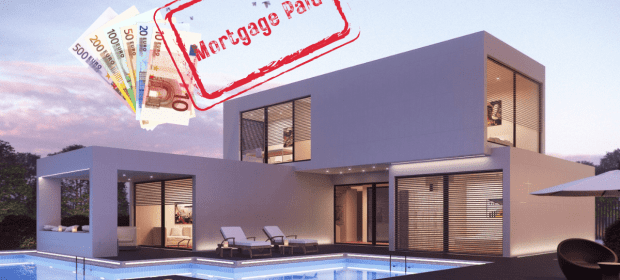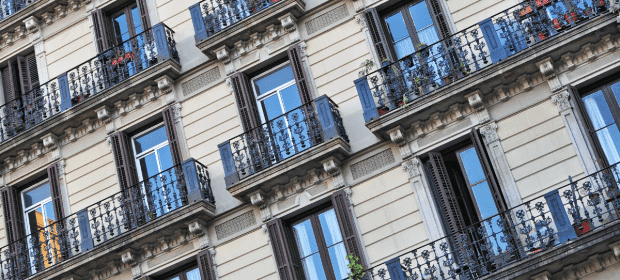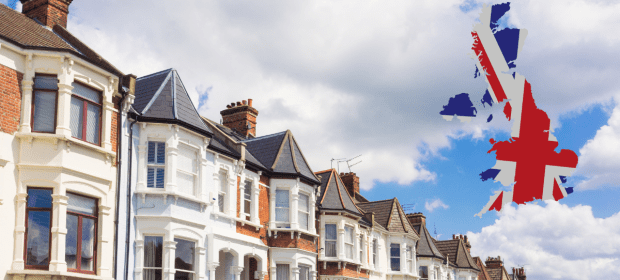Over the years, we’ve heard the arguments as to which is the better investment: Property or investments. Both have their advantages and disadvantages, and there are several aspects of each that make them unique investments in their own way. To make money with either investment requires that you understand the positives and negatives of both.
Ever since the Olympic Games in 1992, Barcelona has become a very popular place to visit, live, work and invest.
Why is Barcelona such a great place to live?
From a logistical point of view, quality of life, the cost of living and the culture/the way people live here, it’s easy to see why Barcelona is such a popular place to live. It has a good International airport 15 minutes away by car that flies to most destinations, and the most popular several times a day (to London for example you have more than 30 flights a day in the summer). You can live as cheaply or as expensive as you wish and still enjoy the beautiful city (even the museums are free on at least one night of the year) as well as the surrounding countryside and beaches. With France only being just over an hour away, the Ski slopes two and a half, it’s easy to see why it’s such a popular place to live. The city has a very laid back feel and is easy to get around. I have never heard anyone say they have had enough in Barcelona, put it that way. Yes, it does have some problems like any city, notably organised theft but if you are aware of these then you can easily stay away from them.
Property
Historically, mathematically, it is hard to beat Property as an investment if purely making an overall gain on the money you do invest is your end goal in Barcelona, just as in many other major cities. Property is something that you can physically touch and feel – it’s a tangible good and, therefore, for many investors, feels more real. For many decades this investment has generated consistent wealth and long term appreciation for millions of people. And therefore it should be part of anyone’s assets if they are able to afford one.
What you do have to consider though is why are you buying this property? Is it for a home i.e. an emotional purchase, or purely an investment? For what length of time? What is likely to happen in your life in the next 5-10 years? What currency do you have your money in now? These are some of the key questions to ask yourself.
If you are buying for a home, what you would call an emotional purchase, then in terms of evaluating as a good investment it’s almost irrelevant. This is going to be your home, so whether it goes up in value a great deal, a little or not at all (unlikely over a 15-20 year period) it’s about being happy living there, by yourself or with your family, is all that matters. It’s the memories that count perhaps more than anything else. As long as you don’t pay way over the market value for a property, in the long term you should be fine as an investment and as a home. If it’s purely for an investment, then you need to take into consideration a lot more factors.
Currency
If your money is in a different currency to Euros, is it a good time to change that?
Brexit (particularly if you are British)
Many would argue that keeping a ‘foot’ in the UK with assets or currency is a good thing to do. You never know what is going to happen, it gives you options in the future. You might not want all your assets in Euros, in case you decided to return to the UK as some people have. If there has been a big swing in currency against the pound, this could seriously limit where you do live/your options.
The Costs of Buying a Property in Barcelona
Buying a property in Catalonia is expensive. The costs of purchase are approximately 13% in total. Comparing that to the UK, which up to the value of £250,000 it would cost you approximately 3%, and over £250,000 it would be around 6%. Adding to that the cost of then selling your property at 5% in Barcelona as opposed to 2% in the UK, it is around 10% more expensive here than in the UK to buy and sell somewhere. So if you are looking for a short term investment and particularly if your money is in sterling, taking those factors into account it’s going to be more challenging to make it work for you.
If you are solely interested in investment return, then you have to look at the ‘Yield’ of a property and be unemotional regarding it. This tells you how much of an annual return you are likely to get on your investment. It is calculated by expressing a year’s rental income as a percentage of how much the property cost.
In other words, if the estimated monthly rental on a flat is €1,000, the annual rental would be 12 times that, or €12,000. And if the flat cost €200,000 to buy, then the “yield” would be described as 6% (annual rent, divided by the cost of the property, multiplied by 100). This is known as the ‘gross yield’ which is before all other expenses on running the apartment; the ‘Net Yield’ would be after all costs’.
Therefore, as an investment most professional property investors will not purchase anything less than 7% Yield (gross depending on the maintenance costs of the property annually) otherwise mathematically the property is not giving enough return, even though many will argue the price is increasing and therefore in real terms your investment is rising. But for most property investors, it’s ALL about the Yield.
It’s also all very well buying property in an upward market, as many investors will tell you. The secret to making a profit on property investing is very simple: buy at a good price and sell for much more. That all sounds very easy, but if the charges are excessive it could take quite a while for that to come to fruition.
However, Barcelona in general is on a good upward trend which helps, and also it’s clear to see that if you look hard enough, there are some bargains still to be found. And perhaps one of the biggest benefits of buying in Barcelona, is that you can fix your mortgage ‘for life’ at a very good rate at present, something which is unheard of in the UK. Currently you can get around 2.5% fixed for the life of your mortgage http://www.spectrumspanishmortgages.com/en/home/ Let’s just think about that for a moment. So let’s say your mortgage is €1,000 a month now, in 25 years time it will STILL be €1,000 a month. Historically inflation goes up by 3% every year, meaning every 24 years inflation doubles. So, IF you could get a mortgage at the same rate in 24 years time it would be €2,000 a month, however it is more likely the rate will be higher then as we are at a time when the rates are incredibly low. So, to put it in real terms, in 24 years your salary, should you stay in the same job, should have gone up with inflation and therefore doubled, yet you will STILL be paying the same mortgage of €1,000. Therefore, every 8 years your mortgage outgoing will be decreasing by a third in real terms.
If you are going to own more than one investment property, it would probably be more tax efficient to put these into a Spanish company (S.L.) and have these managed for you. Arguably it would save you money in taxes and inheritances later (although these laws do change) by taking money out through dividends.
What other options do I have?
If you want to ‘flip’ your money, that means to invest in something short term, make a profit and take your money out then your options are limited. Stocks can be volatile over that period of time, back accounts offer tiny interest rates and in general you are looking at more high risk strategies. One of the reasons for this is, yes over a period of time property is a great performing asset, but property prices don’t just keep going up, or even stay the same. If you were to buy at the wrong moment, when the market freezes or crashes, you could find it very difficult to get out of that particular property without holding it for a long period of time or losing money. Cyclically they can crash, and when they do, this can cause major headaches/heartache for the owners. Not just from a loss in value either.
Potential Property investment issues
Imagine your 2 properties are rented out as investment. However, what if one of your tenants decides not to pay anymore, because they lost their job, or just because they decide they don’t want to (this happens more than you think). That income needs to be covered. In the UK you have procedures in place to remove these tenants fairly for both sides within 3 months. IN Barcelona, this is not the case. The laws are on the side of the tenant, and most lawyers will tell you the best way to get your non paying tenants out is to pay them off, unbelievably! And even then they could still refuse to leave and there is not much you can do until the end of their contract.
Let’s imagine that none of this happens, that you have a successful property investment over 15 years and you manage to double your investment of €200,000 into €400,000. Of course, you also have fees of 18% to consider (13% on buying, 5% on selling, although remember you are selling at €400,000, not €200,000 so its 5% of the higher figure. So actually you receive €400,000 minus approximately €46,000, that’s a gain of €154,000 over a 15 year period). Now you have to pay capital gains tax on that gain which starts at 19% up to 23%, which would be €34,300, so you would be left with €119,700. Which assuming the rent you received covered the mortgage and not much else is a decent sum.
However, let us imagine that instead of owning two properties, you only owned one. The other you invested in a portfolio that matched your risk/reward profile, that was liquid (you could have access to this after 5 years, with limited access before it) and very tax efficient.
Being cautious, let us say you achieved 4% gain per year on your investment which would value that at €360,018 (4% compounded interest over 15 years). There are no other charges or taxes to worry about except capital gains tax on that amount. If you have done this with a Spanish compliant product, you would qualify for ‘Spanish proportional Tax’ which means the gain would be offset by the original investment amount. Therefore, in the above scenario you would pay €35,584 capital gains tax on the property, leaving you a net profit of €124,434 . However, if you took this as an annual income of say €14,000, then just over half would be tax exempt, see below:
€14,000 drawdown per year from €360,018, tax payable of €1,187 per annum.
You can repeat this year after year, and on the basis that 4% interest is earned from the €360,018 at €14,000 annually, this effectively covers the €14,000 a year you take as income, meaning you could receive this every year paying the same tax, still keeping the same capital amount of €360,000.
So in real terms, over another 15 years you would pay little more than €17,805 in tax, from taking €210,000 income AND still have the capital of €360,000 which you can use/assign to someone else or pass on to heirs.
You would have liquidity (access to money if needed) and perhaps most important FLEXIBILITY. To help your children with university fee’s, provide yourself a tax efficient income or just take the money whenever you needed it (after 5 years).
Like property, investments are not guaranteed although over the last 30 years they have well outperformed property. In the UK for example, property has achieved around 402% return in that time, compared to UK equities (stocks) which have achieved 1433% (dividend shares re-invested).
To summarise, Barcelona Property can be a very good investment, but nothing is guaranteed in life except death and taxes (Benjamin Franklin). You should have a ‘basket of investments/assets including property/investments’ if possible, that are well thought out giving you the freedom, flexibility and liquidity to provide income for you.










